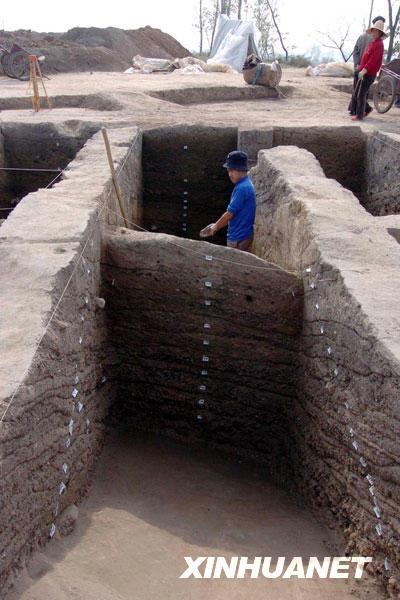Peking University. Beijing. April 1st, 2009: according to the state-run Xinhua news agency, on March 31st, 2008 China s Top 10 Discoveries in Archeology was announced in Beijing. The event was hosted by the State Cultural Relics Bureau and the result was voted by scholars and experts in archeology and relative institutions nationwide among 25 candidate projects.
They are: the Yangguanzhai Site, Gaoling, Shaanxi Province, Qi s Culture Cemetery in Mogou Village, Lintan, Gansu Province, the group sites of salt industry at Shuangwangcheng, Shouguang City, Shandong Province, Zhougongmiao Site at Qishan, Shaanxi, Haimenkou Site at Jianchuan, Yunnan, Niangniangzhai Site at Yingyang, Henan, Helvcheng Site at Wuxi, Jiangsu, Shuangdun No.1 Cemetery at Bangbu, Anhui, Huzhuang Cemetery at Xinzheng, Henan, and Jiangnanguan Street Site of Streetblocks in Tang and Song Dynasty, Chengdu, Sichuan.
All these projects are of critical archeological value and particularly significant for the development of the discipline, observed Xu Pingfang, the famous archeologist and researcher of the Archeology Institution of Chinese Academy of Social Science.

Among them, Zhougongmiao Site at Qishan, Shaanxi Province, is led by the PKU team. With the area of about 80, 000 square meters, it s the top rank cemetery of the Western Zhou Dynasty. A 1500-meter-plus wall was found around the cemetery, which is of essential importance to the archeology history of Western Zhou and the history of architecture in China. With more than 2,200 characters inscribed on bones or tortoise shells discovered so far, it has been known as the site with most inscriptions on bones or tortoise shells of Western Zhou found.
The well-known expert on Shang & Zhou Archeology in China Mr. Zou Heng remarked, the discovery of the site is the most important one in archeology since the foundation of the People s Republic of China. With the inscriptions found on so many locations in it, it may become the Yin Site of Western Zhou, bearing inestimable value on the study of China s history of civilization, on inheriting and carrying on the distinguished cultural tradition.
Edited by: Ding Zhilan
Translated by: Lin Jingxian
Source: PKU News (Chinese)
Related News
Photos
More>>history
- Symposium on Ruzang Compilation Project Attracts Korean and Japanese Scholars
- Beijing Forum 2010 to Hold Panel Session for Young Students
- Premier Wen Celebrates Youth Day with PKU Students
- First Annual China Youth Reproductive Health Research Report Released at PKU
- RusNano Executives Visit Peking University
Traditions
- PKU Prof. Pan Wenshi Wins World's Most Influential Chinese Award
- PKU and UPenn Vow Further Cooperation at PKU-UPenn Day
- 15 Professors from School of Foreign Languages of PKU Awarded Senior Translators
- Zhang Foundation Awards Lhasa Students
- Red Ribbon Rises with Hope: AIDS Awareness Week by School of Public Health





